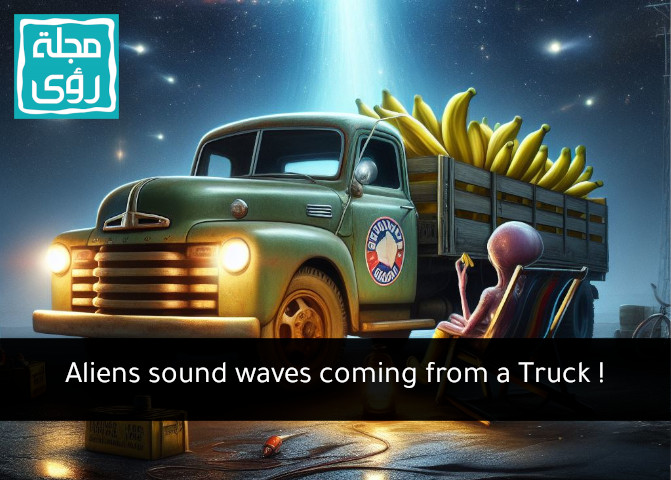
In shocking news for fans of Aliens and in a comedic twist of cosmic science, it turns out that the sound waves we thought originated from a distant planet and were captured as what was believed to be a meteorite fireball in 2014 in northern Papua New Guinea, were nothing but a truck rumbling on a nearby road!
Yes, those mysterious sounds were just vibrations from a truck driving on the adjacent road, according to a new study presented by Johns Hopkins University. This new scientific scandal precisely embodies the strangeness that can occur in the world of scientific research.
Benjamin Fernando, a planetary seismologist and author of the new study, stated, “The signal changed direction over time, perfectly matching the path trucks travel.”
Fernando added, “It’s really hard to take a signal and confirm it’s not from something extraterrestrial. But what we can do is show that there are many signals like this, all carrying the characteristics we expect from trucks and none of the characteristics we expect from meteors.”
The team will present its findings on March 12 at the Lunar and Planetary Science Conference in Houston, following the entry of a meteor into Earth’s atmosphere over the western Pacific Ocean in January 2014, which was initially linked to seismic vibrations recorded at a station on Manus Island in Papua New Guinea. In 2023, materials found on the ocean floor near the presumed impact site were identified as having an “extraterrestrial technological origin”!
However, according to Fernando, these assumptions rely on misinterpretations of data, as the meteor actually entered the atmosphere elsewhere. Fernando’s team found no evidence of seismic waves resulting from the meteor.
Fernando added, “Actually, the meteor’s location was far from where the oceanic mission went to recover these meteorite fragments. They used the wrong signal, and they were looking in the completely wrong place.” Based on data from stations in Australia and Palau, Fernando’s team identified a more likely meteor location over 100 miles from the area initially investigated.
They concluded that the materials retrieved from the seabed were very small, ordinary meteorites—or particles resulting from other meteor collisions with Earth’s surface mixed with terrestrial pollution.
Why do scientists sometimes make mistakes?
Of course, this isn’t the first time a scientific misinterpretation or misunderstanding of scientific data has occurred. In the world of research and science, it’s natural and expected for mistakes to happen from time to time. Science evolves through experiments and discoveries, and mistakes represent an opportunity for learning and improving scientific processes.
This comedic scientific scandal serves as a model for the challenges that can be faced in the field of scientific research. The reasons for this error include several factors, including:
- Incorrect interpretation of data: There may be incorrect interpretations of available data, leading to erroneous conclusions.
- Confirmation bias: Confirmation bias may lead to the selection of signals or data that support preconceived assumptions, without carefully considering other available data.
- Shortcomings in research and verification: Shortcomings in research and data verification may lead to missing important information or alternative explanations.
- Ineffective communication: Poor communication between research teams may result in a failure to exchange necessary information or a misunderstanding of results.
- Rushing to conclusions: Hurrying to reach conclusions may lead to ignoring complex factors that may affect the correct interpretation of data.
By learning from our mistakes, we can improve the processes of scientific research and ensure the attainment of accurate and reliable results.
